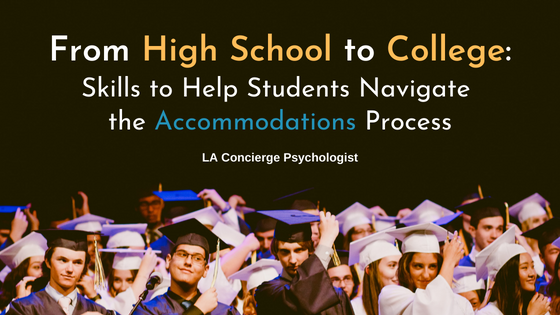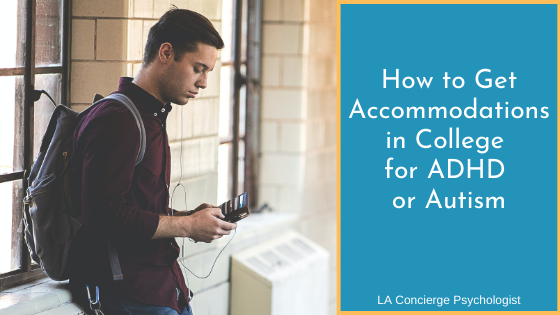The transition to college comes with lots of excitement… and usually also a hefty dose of anxiety. College is often the first time your child will live away from home and be entirely responsible for his or her life. Not only will he or she be handling more rigorous academics, but he or she will be navigating a new social scene, juggling more competing responsibilities than ever, and managing higher levels of stress. Without proper planning and support, your child may struggle or flounder.
For the smoothest transition possible, take a team approach to planning. Gather your child and all the important adults who have contributed to your child’s success in high school (e.g., parents, school personnel, psychologist) to discuss your child’s strengths and needs in all aspects of life. Remember, college is more than just academics. It takes academic aptitude, social skills, emotional resilience, and basic life skills to thrive in a college environment.
Ideally, the team should start discussing transition planning in high school. By starting early, it allows your child to start building some needed college-readiness skills before he or she lands on campus. It will also give the team a chance to see how quickly your child can learn these essential skills. This will give everyone an idea of what level of support will be needed in college and for how long.
The transition plan is the roadmap the team will use to ensure your child’s success. It’s important to discuss each potential area of support and then establish specific, concrete ways to provide the needed support. The members of the team don’t necessarily have to give the support, but they should work together to determine who can. For example, it wouldn’t be appropriate for the former high school teacher to give academic support while your child is in college. However, the team could find an excellent tutor to fill that role.
Not sure where to even start? Here are some important college-readiness skills that may need support:
- Waking up independently
- Getting to appointments on time
- Establishing a daily routine
- Balancing academics and social life
- Managing competing responsibilities and deadlines
- Developing effective study skills
- Communicating appropriately with professors
- Building and maintaining meaningful social relationships
- Navigating complex roommate and dorm dynamics
- Handling academic and interpersonal stress
- Maintaining healthy eating and exercise habits
- Managing money effectively
- Learning to self-advocate
- Problem-solving when faced with obstacles
The transition to college will inevitably come with challenges and setbacks. Fortunately, with a supportive team and detailed transition plan, setbacks become learning experiences instead of crises. So, although the transition to college may still be difficult, it won’t be insurmountable.
Click here for more information on College Transition and Gap Year Consultation.
Need an experienced professional to lead your transition team? Send us a message or book a free 20 minute consultation call with Dr. Barajas or Dr. Goldman to see how we can help.





